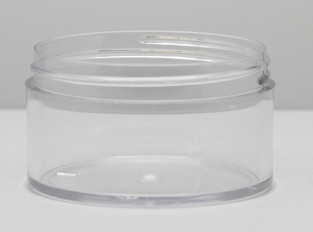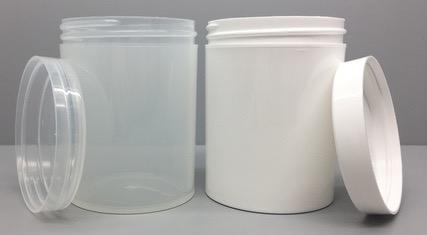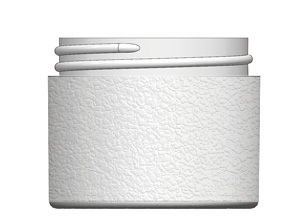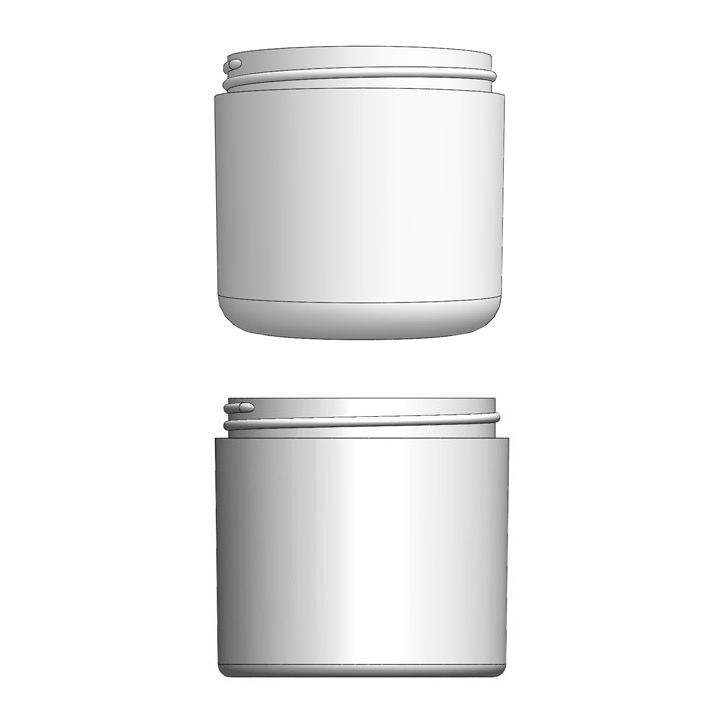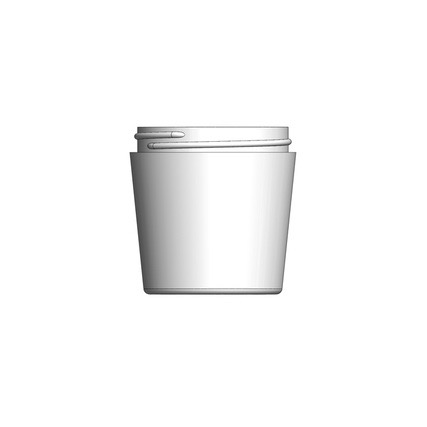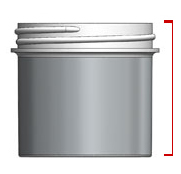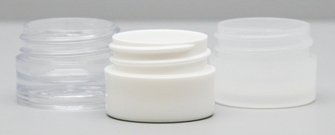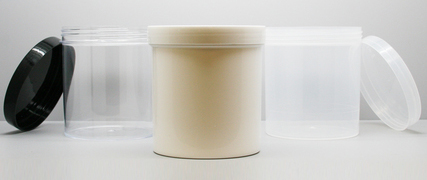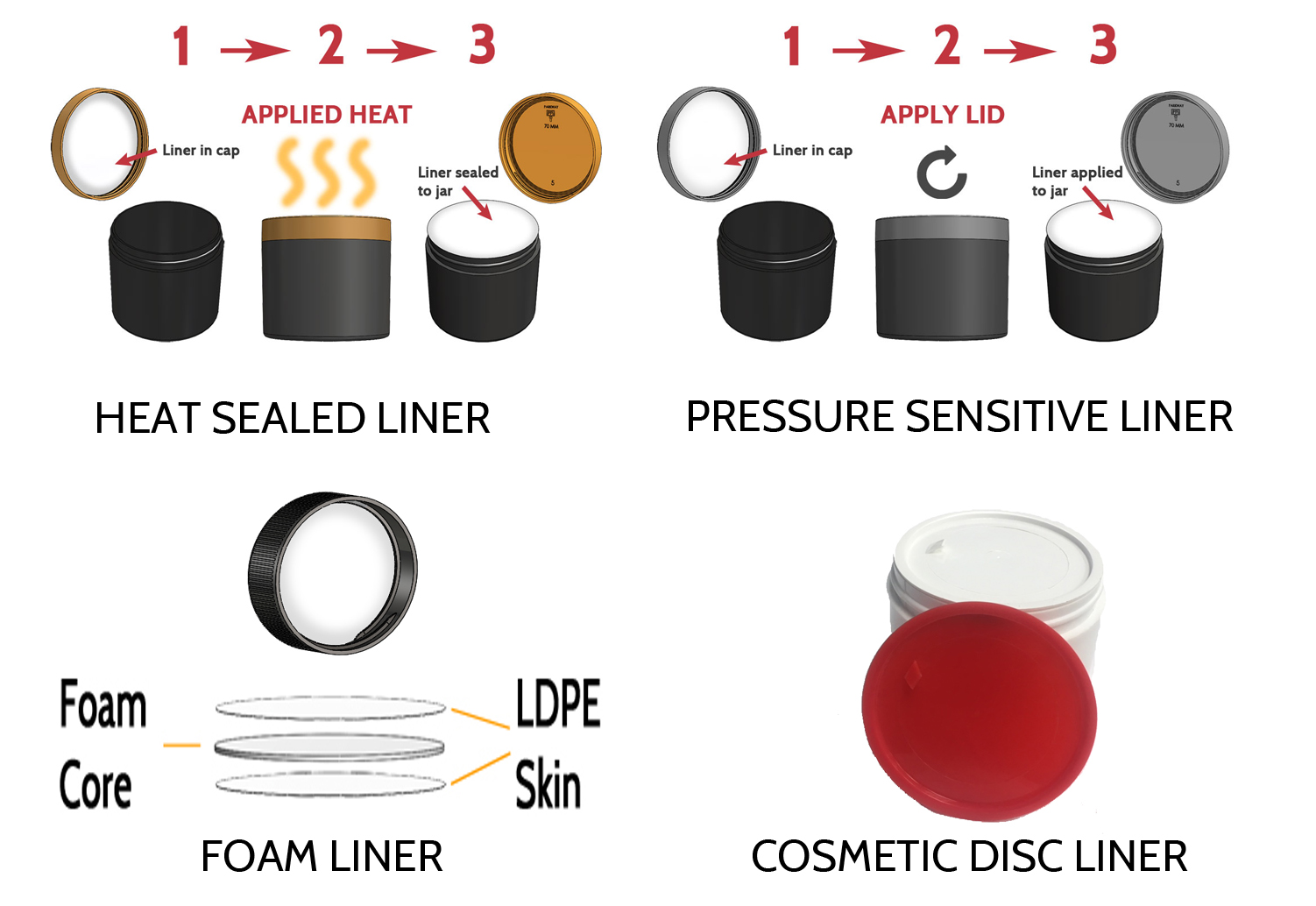 Loading... Please wait...
Loading... Please wait...Blog - Diameter
Know Your Plastic: 5 Things You Should Know When Buying Plastic Jars
Posted by Drew Eisen on 05-08-2018
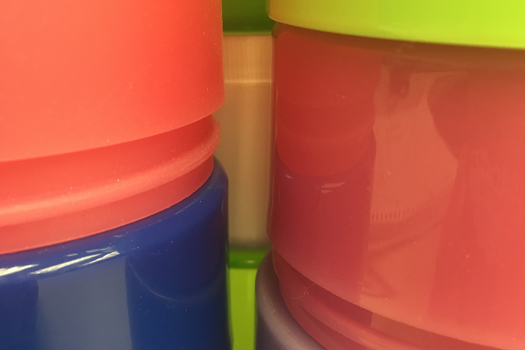
If you’re new to plastics or are contemplating making your first order of customized plastic jars, here are a five things to consider first:
1. THE LOOK
Aesthetically speaking, what type of jar are you looking for?
Are you searching for the clear, sleek appearance of a styrene jar? Or the smokey, opaque look of a clarified polypropylene? Does the non-transparent, classic white jar suit your needs? Or would you prefer to customize the color? Parkway Plastics allow customers to choose from a palette of nearly 200 colors.
More specialized options, like Frostique Jars, offer a textured, eye-catching alternative if you’re looking for a truly customized plastic order.
2. THE WIDTH
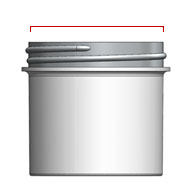 WIDTH |
ROUND BOTTOM (LEFT); TAPERED THICK WALL (RIGHT) |
What diameter suits your needs? Jars range from the narrow, 33mm, to wide-mouth size, as large as 120mm.
For a more distinct or sharp looking plastic container, styles like the Round Bottom or Tapered Thick Walls are options worth considering.
3. THE VOLUME
|
VOLUME |
Essentially, how tall a container are you looking for? Container volumes range from 1/8 oz to 40 oz. The tiny containers are popular in the makeup, cosmetic and skincare industry and are used for products such as lip balms and eye serums. Larger containers work well for shipping small parts, storing foods like peanut butter, nuts and seeds; and are also used in the garden with soil and planting seedlings.
PLASTIC AND YOUR GARDEN: SIZING
For most gardening needs, whether you’re planning to use a plastic jar as a planter or are hoping to store soil or plant trimmings, Parkway Plastic’s larger containers elevate your gardening game. These containers have diameters ranging anywhere from 89mm to 122mm; in volume, that translates to containers capable of holding between 16oz to 40oz.
For a fresh and aesthetic DIY look, plastic jars make a durable alternative to glassware. Styrene jars are perfect for making a non-glass terrarium with your kids or creating sleek-looking planters that showcase more than just what’s growing above the soil.
If you’re looking for a better way to store unused seeds, Parkway carries a selection of smaller containers (recommended diameter, 33mm, and a volume somewhere between 1/4 oz and 1 oz). Also available in a clear styrene, these smaller jars offer a storage option that allows you or the gardener in your life to easily keep track of their seed supply, season after season.
TIP: It’s not uncommon for people who order Parkway’s smaller plastic jars to find additional applications for them around the house, be it revamping a spice rack, customizing the pantry or decluttering a desk or home office.

4. THE LID TYPE
Do you need Child Resistant Caps? Or would you prefer caps that are more stylized? Options like ribbed, smooth or domed are available at Parkway and offer additional customization.
Other customers, most concerned with finding a tight seal, may opt for a Snap Lock Lid.
5. CAP LINERS
Do your jars need a liner? Or maybe you’re wondering “what, exactly, is a cap liner anyway?”
The functions and types of cap liners vary, ranging from heat sealed liners that prevent leakage to pressure sensitive liners that offer tamper prevention and monitoring.
Foam liners, although not leak-proof, provide a multi-purpose sealing option that enhances shelf life and allows subsequent sealing after the container is opened. Popular with personal care are cosmetic disc liners, which are mostly aesthetic but do provide a barrier of sorts between the product stored and foreign bodies with which it could come into contact.
Now that you know the five basic steps to deciding which type of liner your product needs, click here to GET STARTED! If you’re still hesitant or unsure, we're here to help! Feel free to CONTACT US!
-----
Drew Eisen grew up in New England and is a Los Angeles based writer, music fan and full-time dog-lover.
Recent Posts
- » Buy Custom Plastic Jars Direct from Manufacturer - Parkway Plastics
- » California Packaging Regulations and You! How does Parkway stack up? Parkway Plastics Meets CA Rigid Plastic Packaging Container Laws!
- » Blow Molding Explained - How PET Jars and Containers are Manufactured!
- » How Reusable Packaging Can Help Improve Your Brand Image & Costs | Safe Plastic Jars for Reuse | Optimize Your Supply Chain with Reusable Plastic Jars and Packaging |
- » Parkway Now Offers Child Resistant Closures | CRC |


